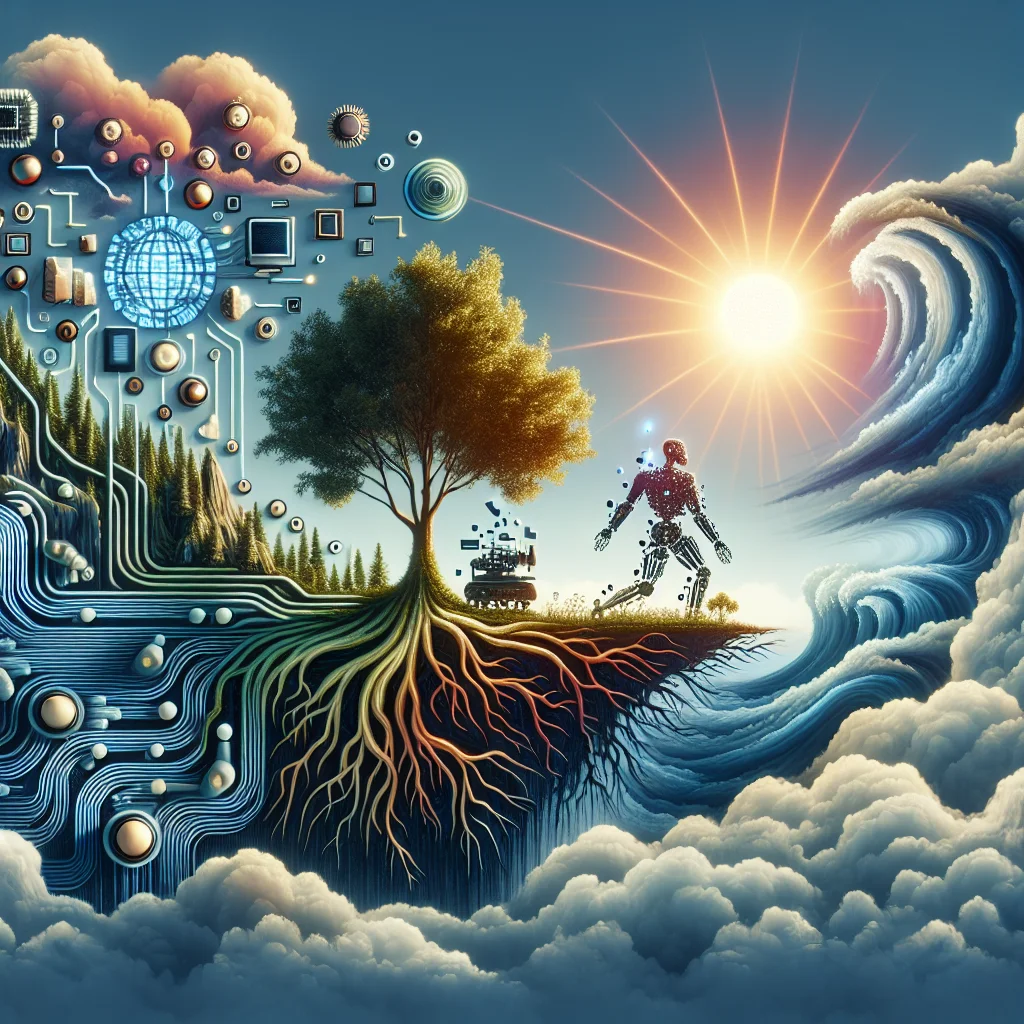Exploring the Latest Trends in AI: 2025 Insights
March 23, 2025

In today's fast-paced digital landscape, artificial intelligence (AI) has transcended its role from a mere technological novelty to a fundamental element driving innovation across various sectors. This article explores the latest trends in AI for 2025, highlighting its applications, expert views, and the transformative potential that AI holds for our future.
What Are the Latest Trends in AI?
As we step into 2025, several key trends are shaping the AI landscape. One of the most significant is the rise of generative AI, which creates content ranging from text to images and even complex simulations. As tools become more accessible, industries are harnessing generative AI for marketing, design, and entertainment, driving creative processes to new heights.
Another trend is the increased integration of AI with Internet of Things (IoT) devices. By combining these technologies, businesses can automate various processes, improve efficiency, and collect valuable data in real-time. Smart homes, connected cars, and industry automation are examples where this synergy is already making a significant impact.
How Is AI Transforming Various Industries?
AI's applications extend to multiple sectors, demonstrating its versatility and practical benefits. In healthcare, AI is revolutionizing diagnostics and patient care. Machine learning algorithms analyze vast amounts of medical data to predict disease outbreaks and assist in personalized medicine.
In finance, AI-driven analytics tools enhance trading strategies and fraud detection systems, enabling quicker and more informed decision-making. As a result, financial institutions can offer more secure services and improve customer satisfaction.
Expert Insights on AI Developments
To gain deeper insights into the ongoing AI evolution, we consulted industry experts. Dr. Jane Smith, a leader in AI research, emphasizes the ethical considerations surrounding AI development. "As we integrate AI into everyday life, ensuring transparency and accountability in these systems is crucial. We must prioritize ethical frameworks that guide AI's deployment in society," she states.
Additionally, tech entrepreneur Mark Johnson highlights the importance of upskilling. "To keep up with AI advancements, professionals must embrace continuous learning and adapt to new technologies. Emphasizing skills that complement AI, like critical thinking and creativity, will become essential," he asserts.
Practical Applications of AI: Real-World Examples
Across the globe, companies are implementing AI in innovative ways. Retail giants use AI for predictive inventory management to streamline supply chains and enhance customer experiences. Online shopping platforms employ AI-driven recommendation engines, personalized user experiences, and efficient customer support chatbots.
In agriculture, AI technologies are being employed for precision farming. Drones equipped with AI analyze crop health, predict yields, and optimize resource allocation, thereby enhancing sustainability and productivity.
Fascinating Facts About AI Advancements
Did you know that by 2025, it's estimated that more than 90% of organizations will be utilizing AI in some capacity? Furthermore, generative AI, one of the fastest-growing sectors, is projected to reach a market size of $100 billion. These statistics highlight not just the growth of AI but also its acceptance and integration into everyday business strategies.
Conclusion
The trends and applications of AI in 2025 underscore the transformative power of this technology across various sectors. From enhancing operational efficiency to redefining customer experiences, AI is set to play a pivotal role in shaping the future. By staying informed about these trends and adapting to advancements, individuals and businesses alike can position themselves at the forefront of innovation.
Back